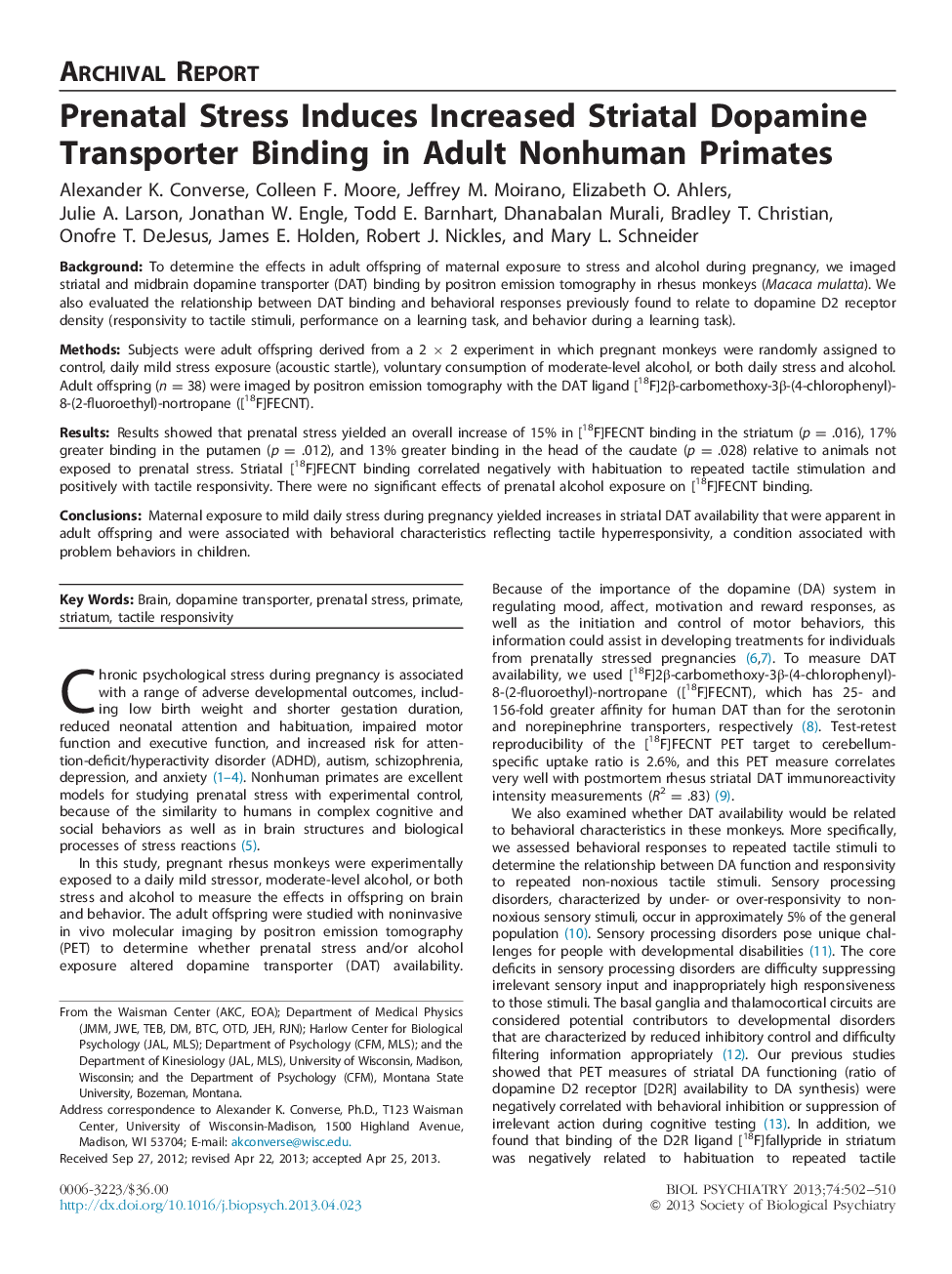| Article ID | Journal | Published Year | Pages | File Type |
|---|---|---|---|---|
| 4178135 | Biological Psychiatry | 2013 | 9 Pages |
BackgroundTo determine the effects in adult offspring of maternal exposure to stress and alcohol during pregnancy, we imaged striatal and midbrain dopamine transporter (DAT) binding by positron emission tomography in rhesus monkeys (Macaca mulatta). We also evaluated the relationship between DAT binding and behavioral responses previously found to relate to dopamine D2 receptor density (responsivity to tactile stimuli, performance on a learning task, and behavior during a learning task).MethodsSubjects were adult offspring derived from a 2 × 2 experiment in which pregnant monkeys were randomly assigned to control, daily mild stress exposure (acoustic startle), voluntary consumption of moderate-level alcohol, or both daily stress and alcohol. Adult offspring (n = 38) were imaged by positron emission tomography with the DAT ligand [18F]2β-carbomethoxy-3β-(4-chlorophenyl)-8-(2-fluoroethyl)-nortropane ([18F]FECNT).ResultsResults showed that prenatal stress yielded an overall increase of 15% in [18F]FECNT binding in the striatum (p = .016), 17% greater binding in the putamen (p = .012), and 13% greater binding in the head of the caudate (p = .028) relative to animals not exposed to prenatal stress. Striatal [18F]FECNT binding correlated negatively with habituation to repeated tactile stimulation and positively with tactile responsivity. There were no significant effects of prenatal alcohol exposure on [18F]FECNT binding.ConclusionsMaternal exposure to mild daily stress during pregnancy yielded increases in striatal DAT availability that were apparent in adult offspring and were associated with behavioral characteristics reflecting tactile hyperresponsivity, a condition associated with problem behaviors in children.
